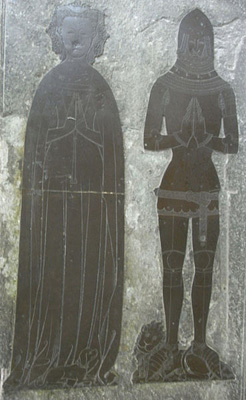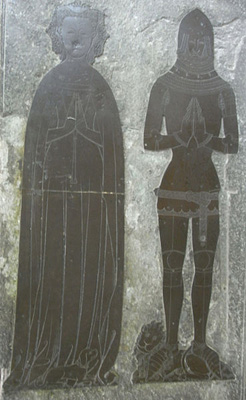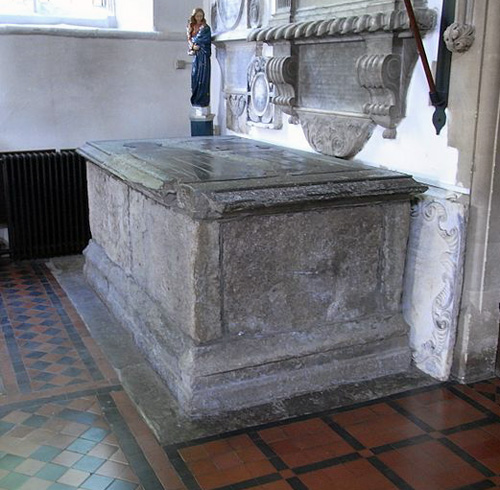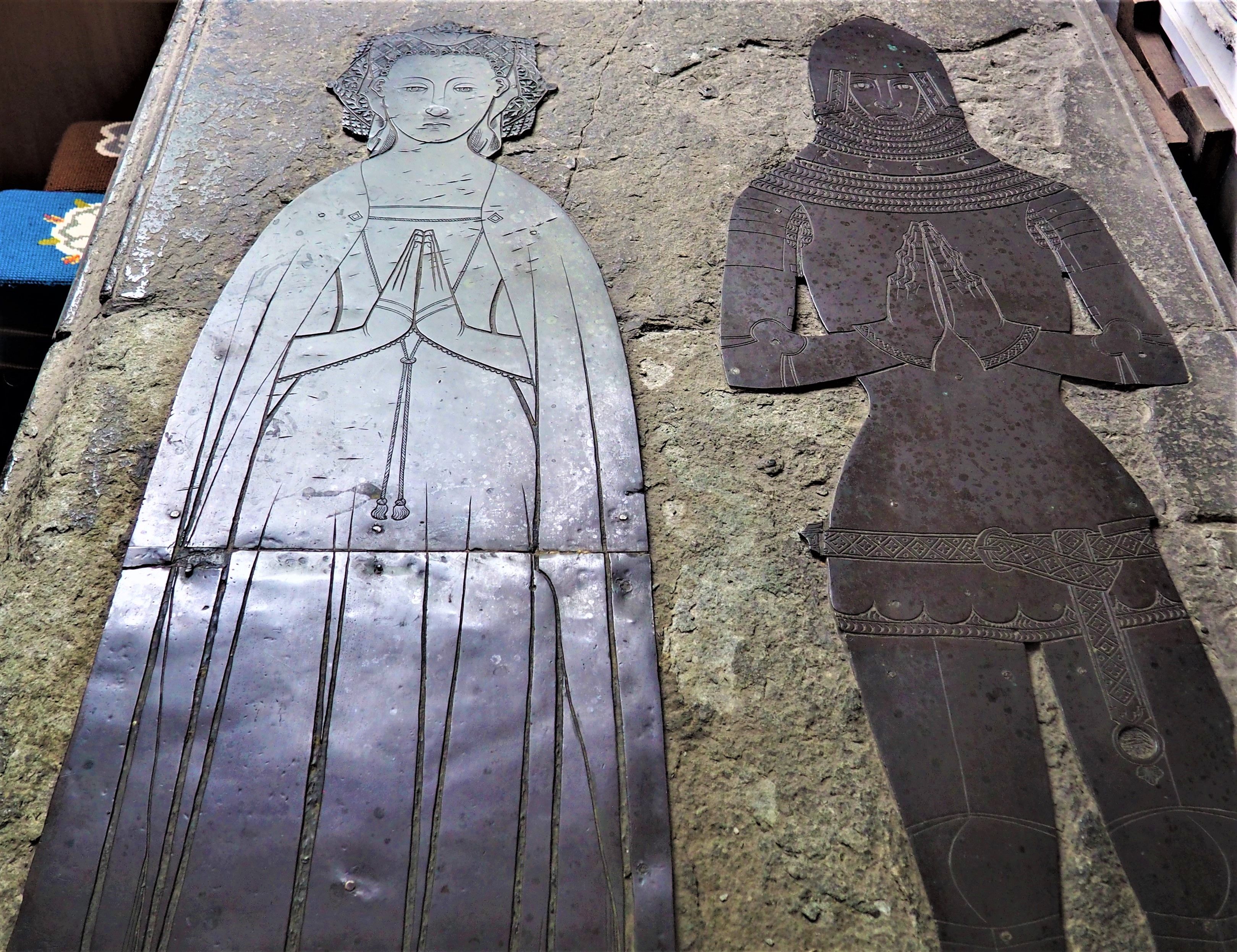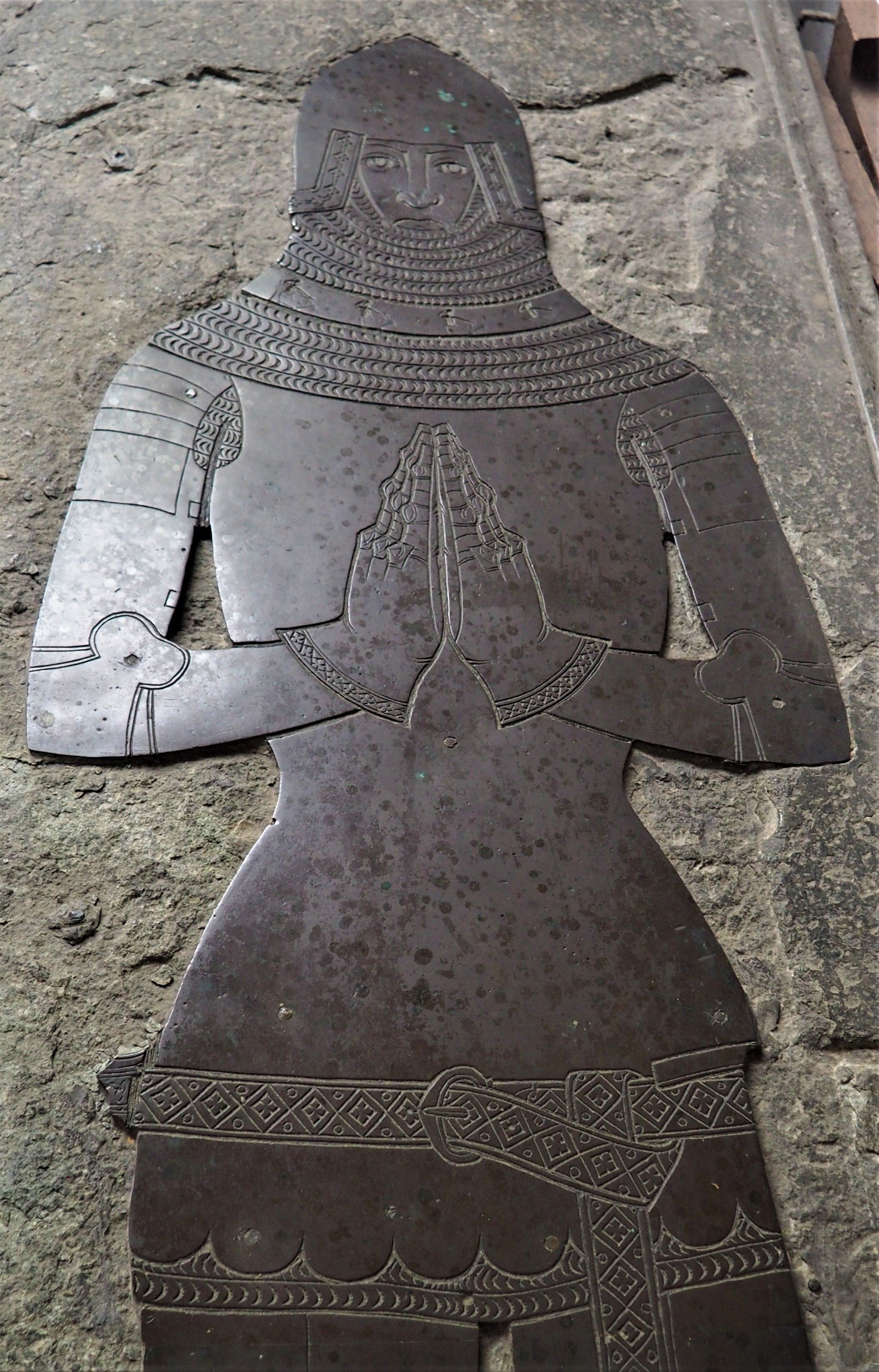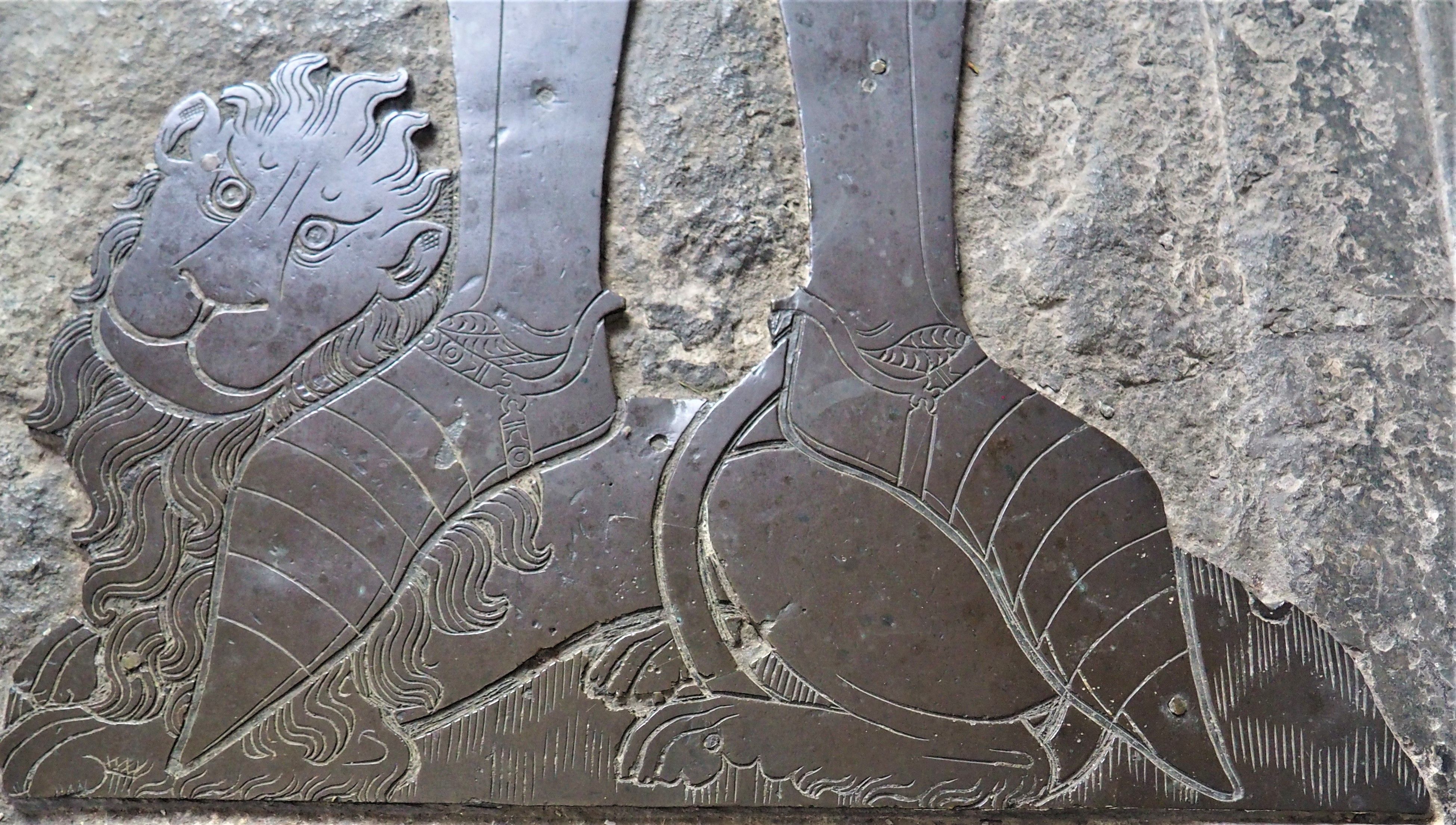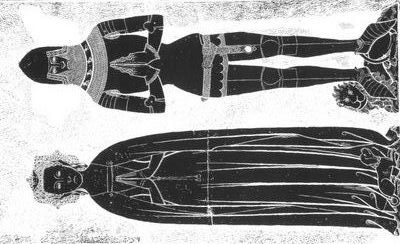Thomas' resume included an extensive military service, by sea and by land, under Richard II; this service was continued and enhanced under Henry IV. Dugdale says that he was appointed Admiral of the King's Fleet in the 5th year of Henry IV: "He was likewise retained by Indenture to serve the King with three hundred Men at Arms, upon the Sea, for one quarter of a year, himself accounted, with eleven Knights, two hundred eighty five Esquires, six hundred Archers, seven Ships, seven Barges, and seven Ballingers, double manned with Marriners," having command to sail to Bordeaux.
Thomas and Margaret's brass was commissioned in 1392 on the death of Margaret, daughter and heiress of Warin, Lord Lisle. It was conceived as a joint memorial, to the Berkeleys as a couple, although Thomas himself was to live for another 25 years. Thomas's choice of a brass for his wife is a measure of the high status enjoyed by brasses at this time. Earlier members of his family had all been commemorated by relief effigies – most of them of freestone but in one case of alabaster; and this tradition was to resume under his successors. Brasses, however, enjoyed particular favor with the aristocracy in Thomas's lifetime.
In Thomas's lifetime the estates of the Berkeley family reached their greatest extent. His wife, an heiress, whom he had married in 1367, brought him the wide Lisle estates in Oxfordshire, Berkshire and Buckinghamshire. Thomas died at Dursley Castle, Dursley, Gloucestershire, , England in 1417 without male issue, however, the Berkeley inheritance was divided between the heir male and the heir general, and the great lawsuit began which was to last for nearly two centuries.
From an unknown source
Thomas' resume included an extensive military service, by sea and by land, under Richard II; this service was continued and enhanced under Henry IV. Dugdale says that he was appointed Admiral of the King's Fleet in the 5th year of Henry IV: "He was likewise retained by Indenture to serve the King with three hundred Men at Arms, upon the Sea, for one quarter of a year, himself accounted, with eleven Knights, two hundred eighty five Esquires, six hundred Archers, seven Ships, seven Barges, and seven Ballingers, double manned with Marriners," having command to sail to Bordeaux.
Thomas and Margaret's brass was commissioned in 1392 on the death of Margaret, daughter and heiress of Warin, Lord Lisle. It was conceived as a joint memorial, to the Berkeleys as a couple, although Thomas himself was to live for another 25 years. Thomas's choice of a brass for his wife is a measure of the high status enjoyed by brasses at this time. Earlier members of his family had all been commemorated by relief effigies – most of them of freestone but in one case of alabaster; and this tradition was to resume under his successors. Brasses, however, enjoyed particular favor with the aristocracy in Thomas's lifetime.
In Thomas's lifetime the estates of the Berkeley family reached their greatest extent. His wife, an heiress, whom he had married in 1367, brought him the wide Lisle estates in Oxfordshire, Berkshire and Buckinghamshire. Thomas died at Dursley Castle, Dursley, Gloucestershire, , England in 1417 without male issue, however, the Berkeley inheritance was divided between the heir male and the heir general, and the great lawsuit began which was to last for nearly two centuries.
From an unknown source
